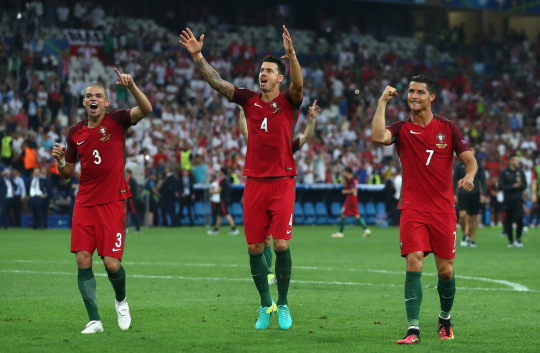Paul McVeigh
Back from covering Euro 16 with some big name pundits, the former Northern Ireland international looks at the psychology of winning.

I’m just back from over a month in Qatar covering the European championships. Being a former Northern Ireland international in the media probably helped my case and I soon found myself in a studio with big name former players Patrick Kluivert, Andy Cole, Michel Salgado, Luis Garcia, Graeme Souness and Kevin Keegan. Andy Gray and Richard Keys are out there too.
I was soon being asked: ‘Who is this Will Grigg?’ It helped break the ice to teach Kluivert ‘Will Grigg’s on fire’. When Northern Ireland went out, their manager Michael O’Neill came over to Doha to do some media work. Kay Murray, the host, asked him about Grigg and why he hadn’t played him.
O’Neill justified his reasons on football grounds. I understand that. He explained that if his side wanted a goal then Kyle Lafferty or Conor Washington were much better options. They’re more natural goalscorers and a higher calibre of player. If you want to change the momentum and dynamic of a game, then Grigg would have been a better choice, but he never got that chance. Football reasons triumphed over psychological reasons, because imagine the impact of Grigg coming on? The stadium would have erupted. The opposing players, who started to learn about him so much that even Gerard Pique tweeted about him, would have not known what to expect. On one hand they would have thought ‘He can’t be much if he’s only a substitute’. On the other, he’s Will Grigg and half of Europe is singing that he’s on fire. Sadly, it wasn’t to be for Will.

Northern Ireland did very well and were one of many teams who showed why psychology triumphed over talent. Iceland do not have better players than England, Wales don’t come close to Belgium’s squad and Portugal are not better than France. So why did they beat them?
Psychology also played a part in the early matches too. Teams were initially very defensive. It’s part of the human psyche to defend what they have, be it their home or family. In sport, though, someone has to attack and as soon as a team went behind, like Northern Ireland against Poland, they had to change their mind-set. The team that went out not to lose were suddenly losing. They had to change their style, to open up and that made for better games, but I note there was still a lot of disappointment around about the quality of football.
Psychology again featured strongly, especially the fear of failure. When you compare Iceland’s players to England’s, they were inferior
technically, tactically and physically – though the physical gap is closing in football. Nothing about any of the Iceland players made them better than England. Not one of them would come close to getting in the England team; it was the equivalent of a League One team playing a Premier League team. Yet they beat England.

Why? They had nothing to lose. They had freedom and no expectations, while England were paralyzed by fear from when they went behind. England had no idea how to get out of the mess when 1-2 down. They thought that anything which can go wrong will go wrong. And it did.
England don’t seem to be learning from mistakes from past tournaments. If this was a business then England would have gone bust. As it is, they get rid of their manager, paper over cracks and try to move on.
England were under pressure, but so were all the big footballing countries. France were under even more pressure after the scandal taking in Karim Benzema and Mathieu Valbuena. They had Samir Nasri and Franck Ribery out injured too, yet they still managed to reach the final.
Compare Wales with Belgium, the team they knocked out and pound for pound the best squad in the tournament. Wales’ success wasn’t down to Gareth Bale who had an OK tournament, but nothing more. He didn’t dominate matches as might have been expected, but then few individuals did. They showed that the team is better than any individual – as best showed by the winner Portugal.
It’s harder for individuals to shine with outrageous skill in international football because the level of understanding of the game is much greater across football. When Northern Ireland played Germany, the world champions had Real Madrid’s Toni Kroos and Juventus’ Sami Khedira up against Blackburn’s Corry Evans and Reading’s Oliver Norwood. Yet the game only finished 1-0. Germany played well, but there’s a tiny number of players – I can think of only Ronaldo and Messi – who can go past several opponents on a run.
Players are so knowledgeable about their job now. With better fitness levels married with technical nous, someone has to be extra special to go past an opponent. Even Ronaldo didn’t score until the third game in France.
The team will always outperform individuals, with the final a great example of that. Portugal’s best player went off and they improved. Portugal plus Ronaldo is a world class one man team. Portugal without Ronaldo became the European champions.

 Yahoo Sport
Yahoo Sport 





































